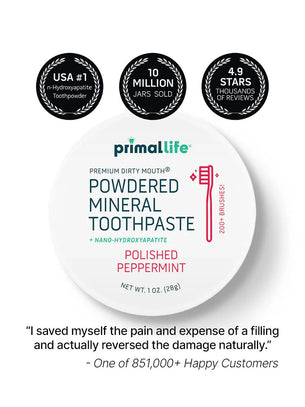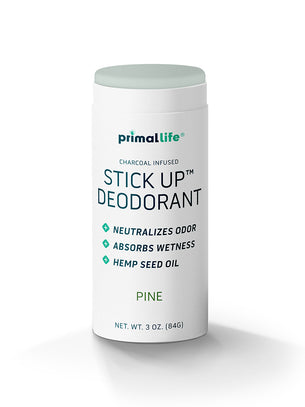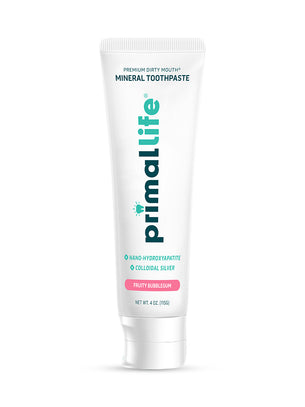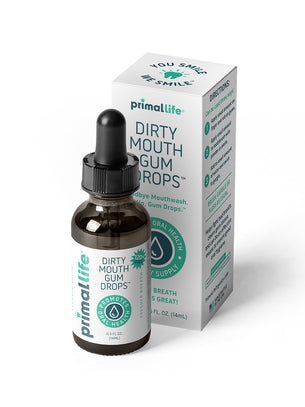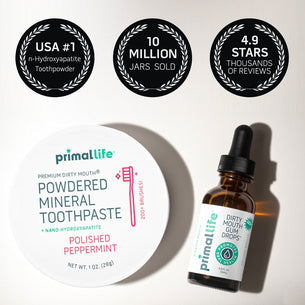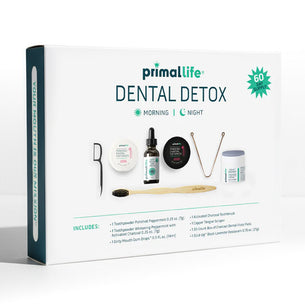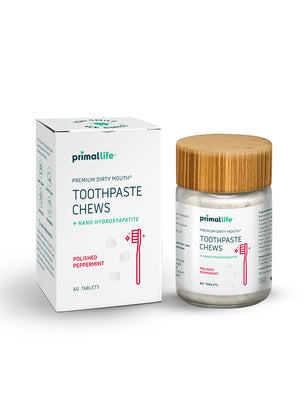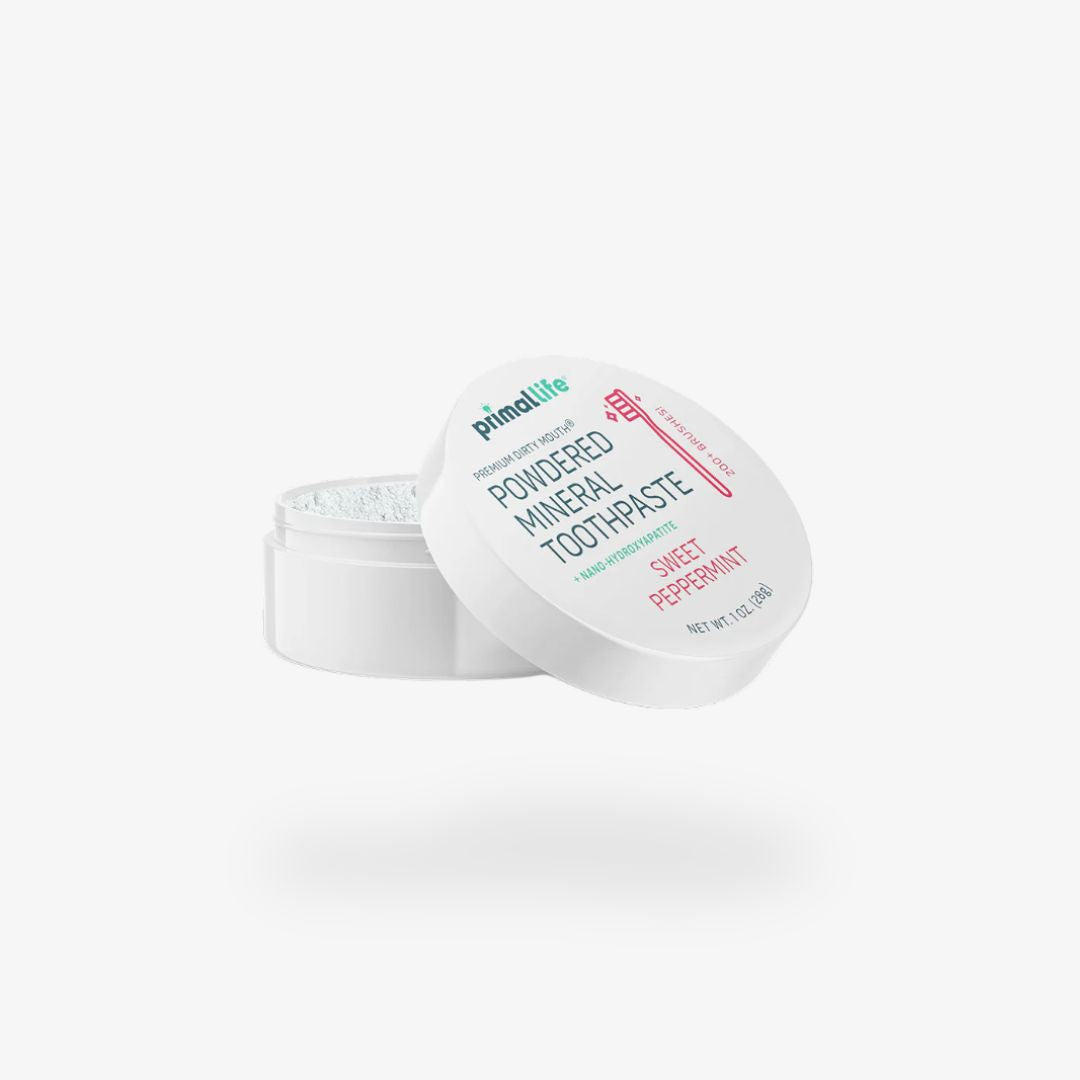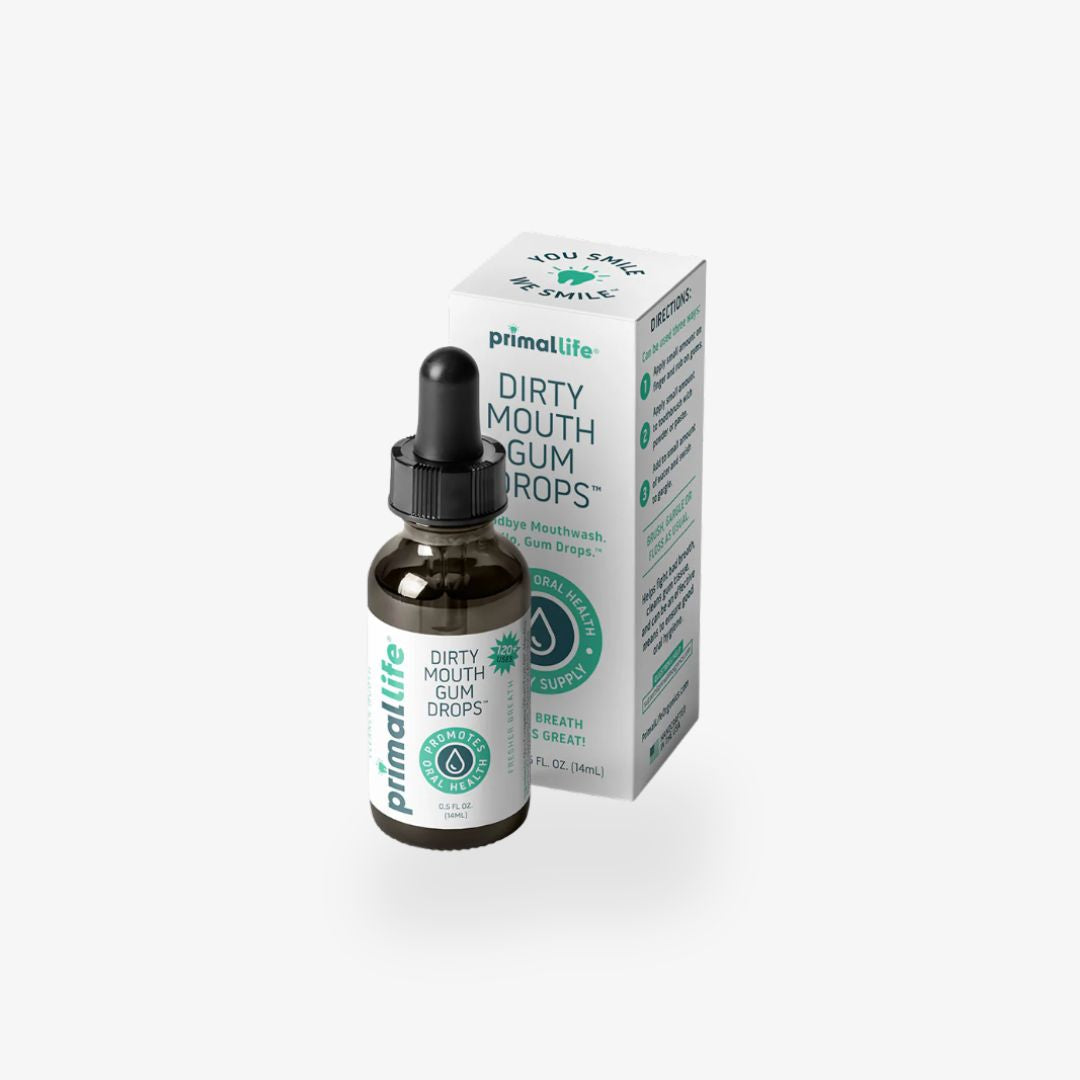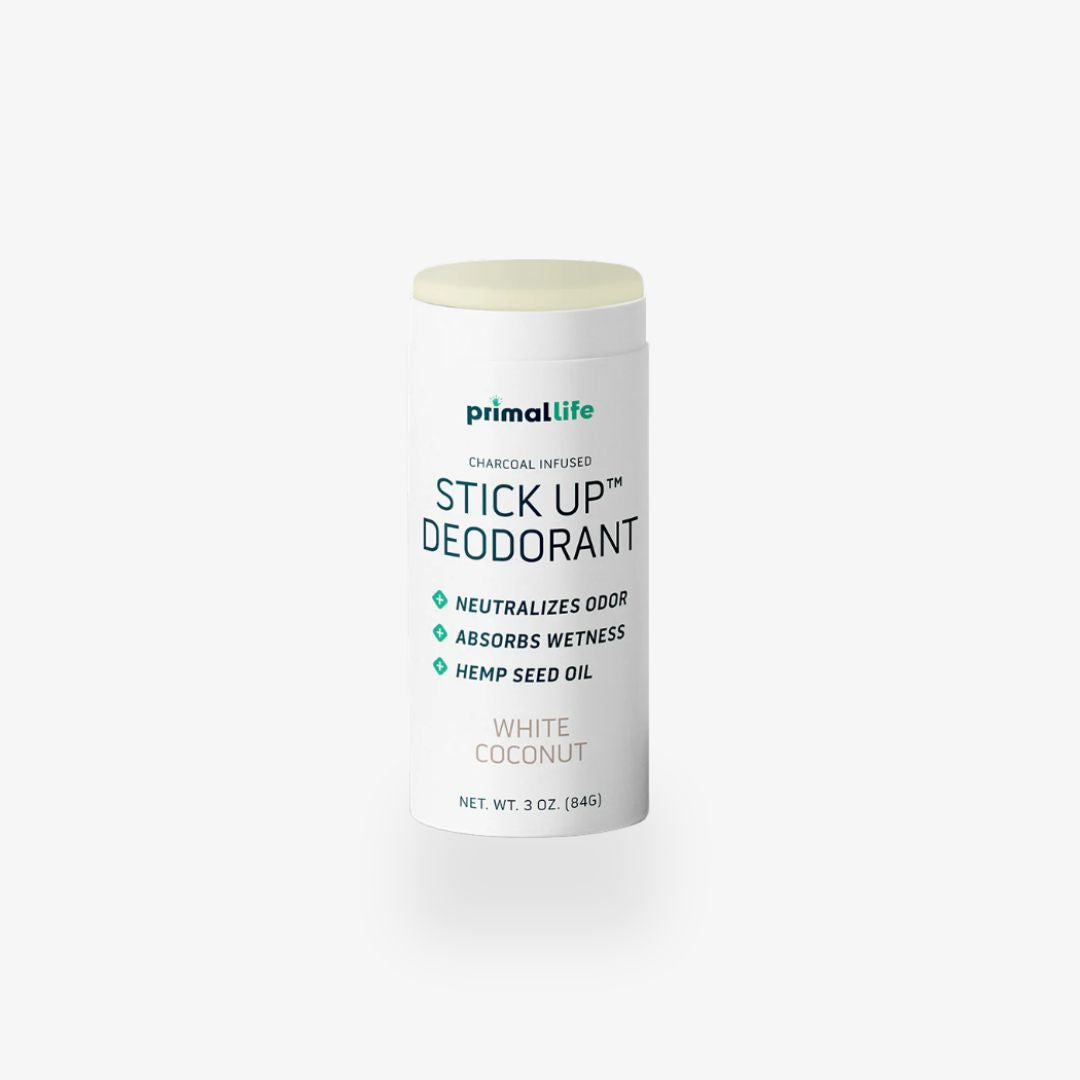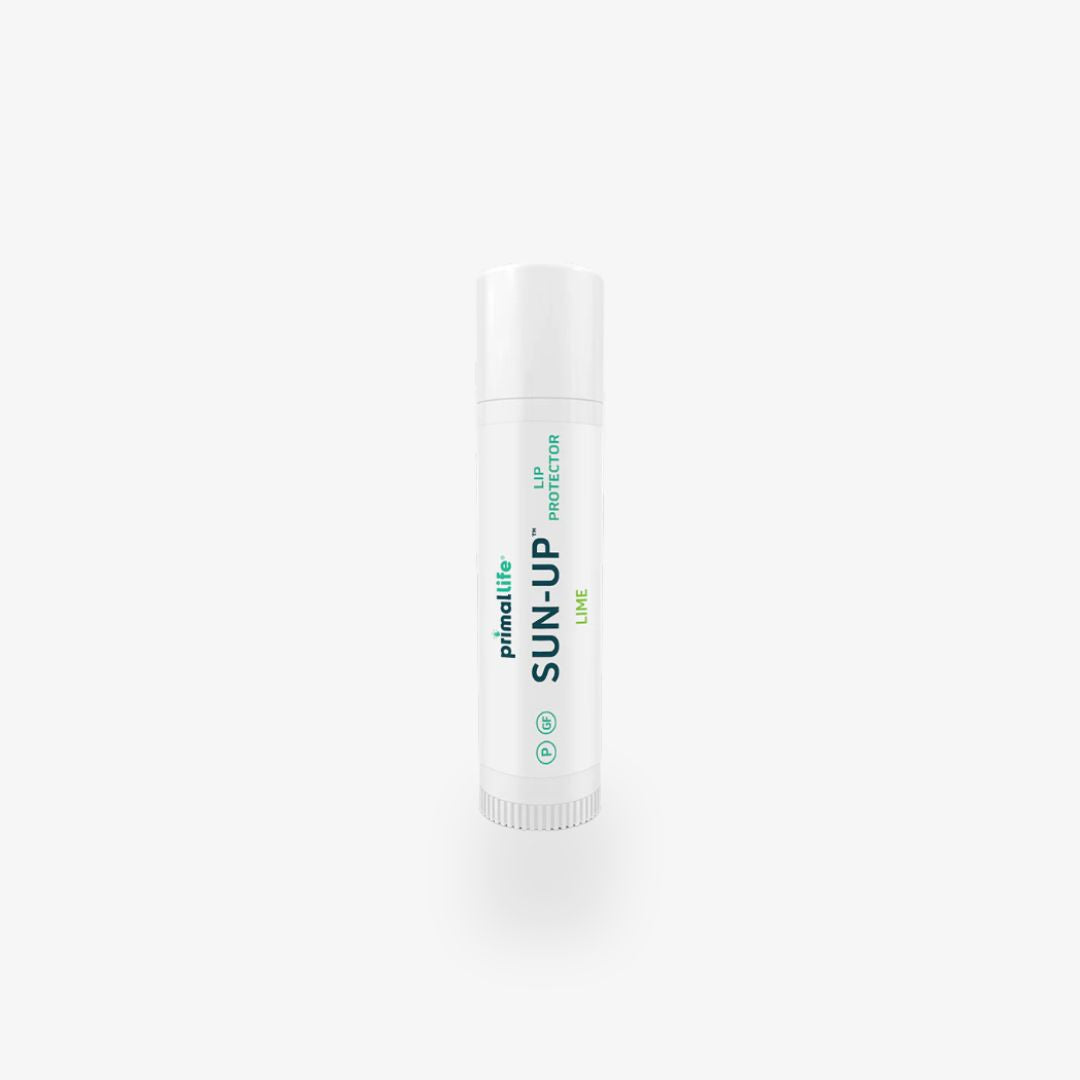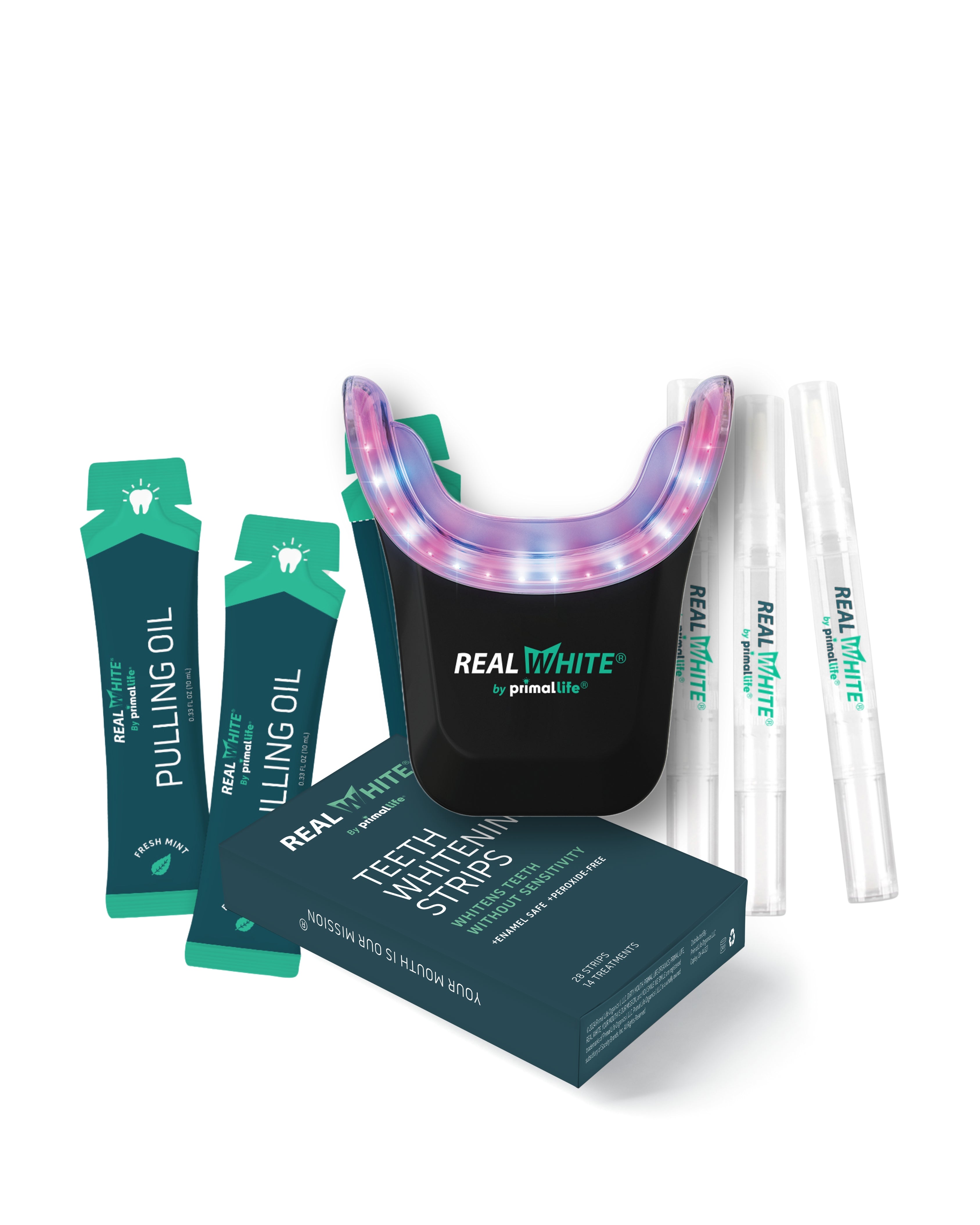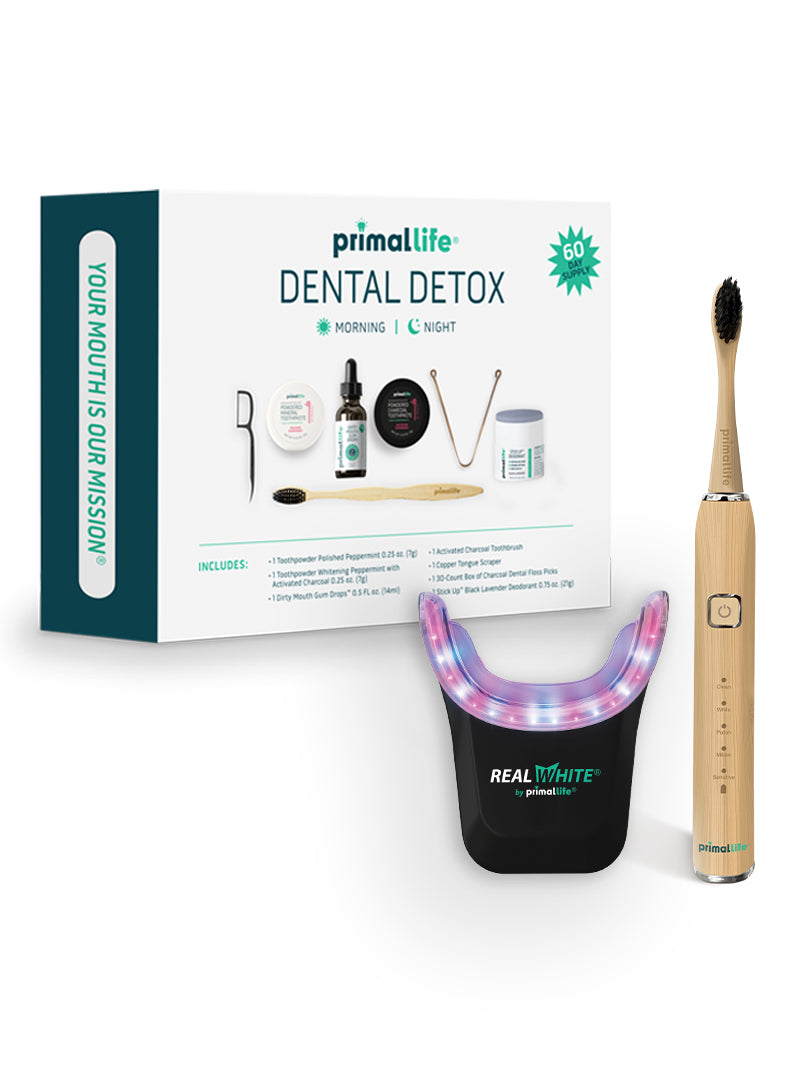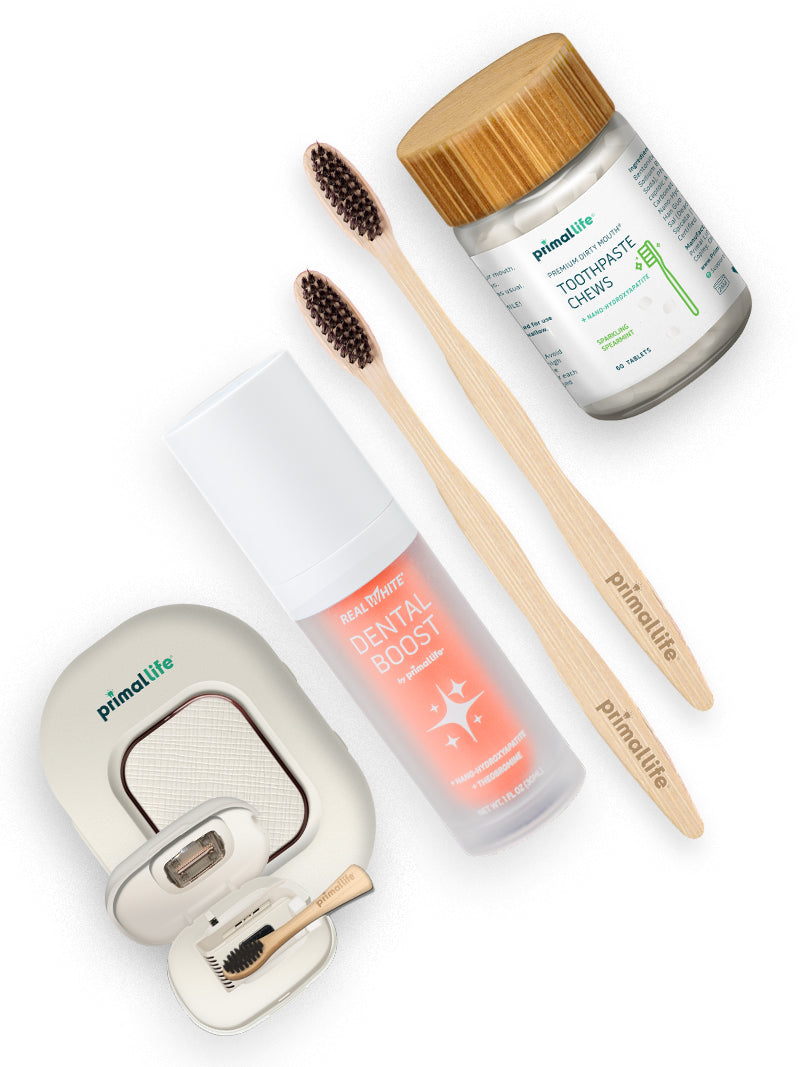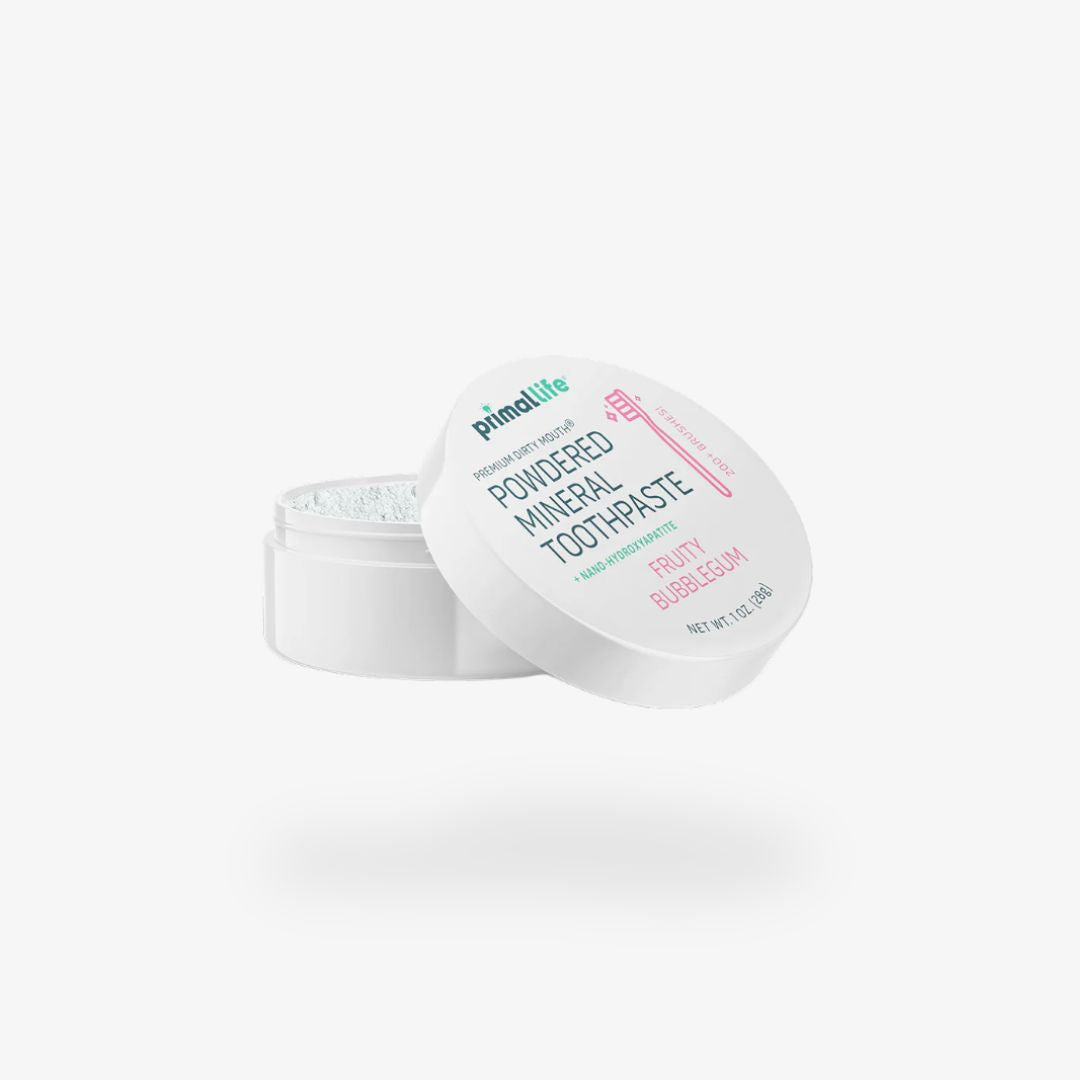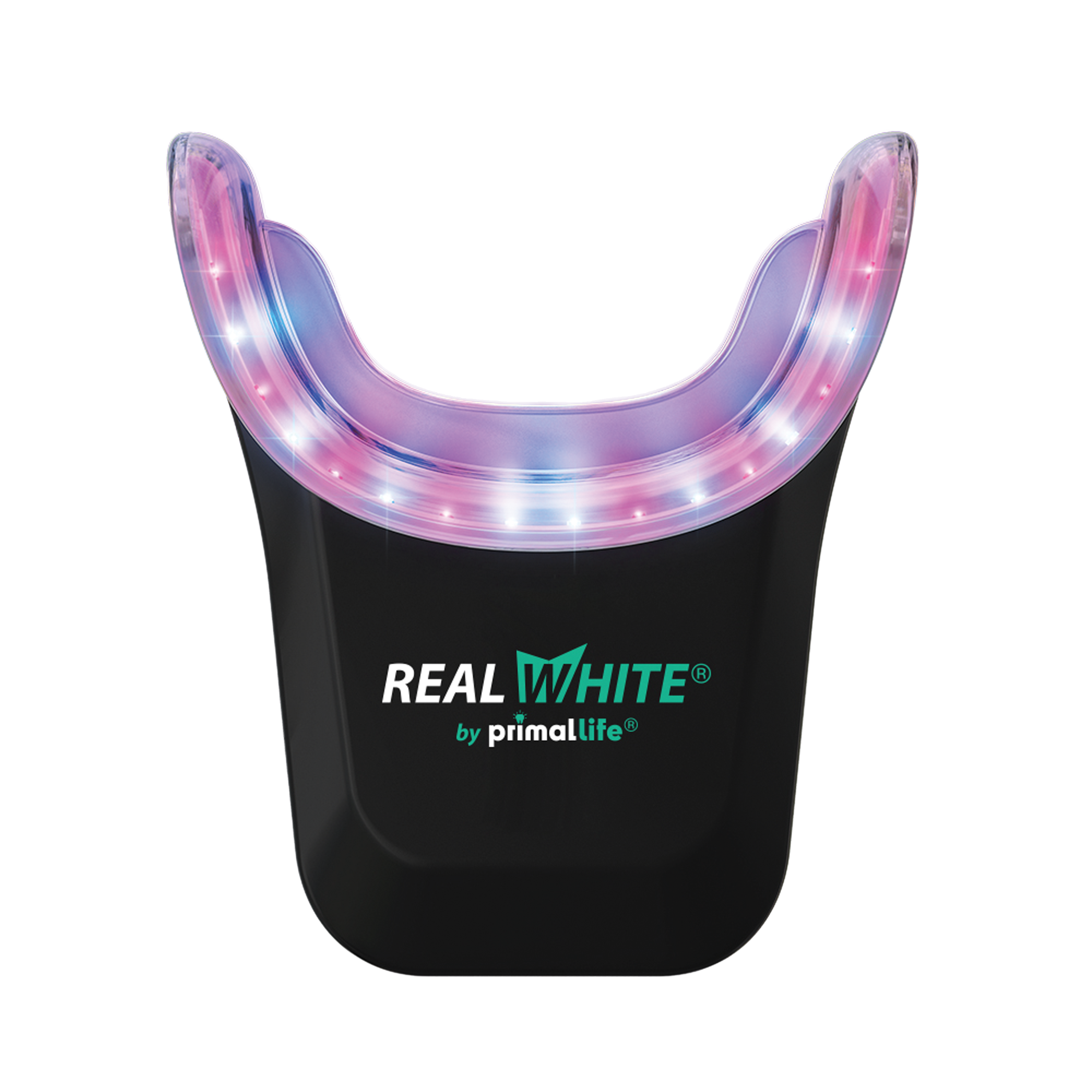In 1992, nitric oxide was crowned 'Molecule of the Year,' and its profound impact on health earned three pharmacologists the 1998 Nobel Prize in cardiovascular health.
This accolade underscores the significance of nitric oxide, revealing its pivotal role in numerous bodily functions. It plays a crucial part in reducing inflammation, enhancing digestion, improving sleep quality, boosting immunity, and influencing memory and behavior.
Surprisingly, your oral health is a big determiner to how much nitric oxide your body produces. And when it comes to the dental products you use, such as antiseptic mouthwash, you could be harming not only your oral health, but all of the bodily function that nitric oxide supports.
Today we are going to unravel the mysteries of nitric oxide, what it is, its impact on our well-being, connection to oral health, and why you need to understand this to improve your overall health outcomes.
What is Nitric Oxide?
Nitric oxide (NO) is a vital signaling molecule naturally produced by the human body, playing a pivotal role in various physiological processes.
Notably, nitric oxide is recognized for its cardiovascular benefits, acting as a potent vasodilator and regulator of blood pressure. Its ability to enhance blood vessel flexibility and withstand pressure changes underscores its significance in cardiovascular health.
This molecule exerts a multifaceted influence on our health, affecting systems such as:
- Memory and Behavior: Nitric oxide impacts nerve cells in the brain, influencing memory and behavior.
- Immunity Booster: Protects against bacteria and cancer cells, enhancing overall immunity.
- Anti-Inflammatory Agent: Functions as an anti-inflammatory, contributing to reduced inflammation.
- Sleep Quality Enhancement: Plays a role in improving sleep quality.
- Endurance and Strength: Enhances endurance and strength during physical activities.
- Gastric Motility: Influences gastric motility, contributing to a healthy digestive system.
- Insulin Signaling: Plays a role in insulin signaling, with potential implications for diabetes management.
- Proper Erectile Functioning: Crucial for proper erectile functioning .
The Top 5 Influences of Nitric Oxide
Nitric Oxide and Erectile Function:
Nitric oxide is crucial for treating erectile dysfunction, promoting muscle relaxation in the penis.
Muscle Soreness Alleviation:
Nitric oxide production, particularly with exercise, is associated with reduced muscle soreness.
Blood Pressure Regulation:
Dietary nitrate, abundant in vegetables like beets and dark leafy greens, supports nitric oxide production, contributing to the regulation of blood pressure.
Enhanced Exercise Performance:
Nitric oxide widens blood vessels, enhancing the delivery of nutrients and oxygen to active muscles, making it a sought-after supplement for athletes.
Type 2 Diabetes Influence:
Reduced nitric oxide production in people with type 2 diabetes is observed. This reduction may impact insulin levels and blood sugar control.
Nitric Oxide and Oral Health
Effective oral bacteria play a crucial role in how much nitric oxide you can produce. This means your oral bacteria can even help you prevent cardiovascular disease and high blood pressure!
Your oral bacteria act as nitrate reducers, producing nitrite as a byproduct during the conversion of nitrate-rich foods. This process leads to the accumulation of nitrite in saliva, and upon ingestion, nitrites interact with stomach acid to generate nitric oxide.
Nitric oxide, with its antimicrobial properties, actively combats several periodontal pathogens and has been shown to help prevent cavities, reduce gingival inflammation in chronic gingivitis patients, and control of volatile sulfur compounds causing halitosis.
While some bacteria can pose threats and cause infections, many are beneficial and essential for bodily functions. The oral microbiome, second only to the gut in bacterial species diversity, plays a vital role. Disruption of the oral microbiome and its bacterial communities can impede nitric oxide production, leading to adverse consequences.
Nitric Oxide and Mouthwash
At Primal Life, we have long talked about the negative effects of commercial mouthwash. This is because toxic chemicals and alcohol work to kill ALL of the bacteria in your mouth, leaving you with a mouth environment that is unable to fight off cavities, gum disease, and bad breath.
And when it comes to nitric oxide, the use of antibacterial mouthwash has been found to significantly diminish oral nitrite production by 90%.
This drop in nitric oxide production is linked to higher systolic and diastolic blood pressure, connecting it with significant cardiovascular risks. Given the widespread issues with cardiovascular disease and hypertension, these results emphasize the importance of eliminating the use of antibacterial mouthwash to maintain good bacteria in your mouth.
This underscores the importance of evaluating oral care practices to include more than just mouth health but also cardiovascular and overall systemic health considerations.
How to Boost Your Nitric Oxide Production Through Oral Wellness
As you can see, your oral health plays a crucial role in maintaining your overall health, especially when it comes to the production of nitric oxide.
This means detoxing your mouth of the toxins found in commercial toothpaste and mouthwash - including fluoride, heavy metals, SLS, parabens, and other chemicals, while simultaneously supporting a healthy, alkaline oral microbiome.
Whether your intention is to increase nitric oxide production or to ensure a cavity-free, healthy mouth, the solution is the same - our Dental Detox Kit.
The Primal Life Dental Detox Kit has everything you need to rid your mouth of toxins and bad bacteria, while remineralizing your teeth and supporting a healthy, alkaline mouth environment. Incorporating a consistent oral care routine that includes remineralizing Toothpowder, Gum Drops, a Copper Tongue Scraper, and Bamboo-Charcoal Dental Picks helps to not only keep your teeth cavity-free, gums healthy, and breath fresh, but also supports your nitric oxide production.
The next step to increase nitric oxide production is using LED light.
Beyond enhancing aesthetics, using both blue and red LED light help to improve overall oral health. Blue LED light enhances nitric oxide production in addition to killing the bad bacteria in your mouth, while red LED light stimulates blood circulation and the growth of new gum tissue.
The Primal Life LED Teeth Whitener uses both blue and red LED light, combined with a remineralizing natural gel to strengthen your teeth as it whitens. This teeth whitener enhances nitric oxide production in the process.
How To Boost Your Body’s Nitric Oxide Production
While comprehensive oral care is vital for enhancing nitric oxide production, several lifestyle and dietary factors can further support its optimal levels. Consider incorporating the following practices to promote overall well-being and maximize nitric oxide benefits:
Regular Exercise: Engage in regular physical activity, as exercise stimulates the release of nitric oxide. Aerobic exercises, such as running or cycling, can be particularly effective in promoting nitric oxide production.
Balanced Diet: Consume a diet rich in nitrate-containing foods, such as leafy greens, beets, and other vegetables. These foods provide the necessary precursors for nitric oxide synthesis.
Supplements: Explore nitric oxide-boosting supplements, including L-citrulline and L-arginine. These amino acids play a role in nitric oxide production and are found in certain foods or available as supplements.
Sun Exposure: Adequate sunlight exposure supports nitric oxide production in the skin. Spend time outdoors to ensure your body receives sufficient sunlight, but always take precautions to prevent excessive sun exposure.
Maintain Healthy Blood Pressure: Since nitric oxide plays a crucial role in regulating blood pressure, it's essential to manage hypertension. Adopting a heart-healthy lifestyle, including a low-sodium diet and stress management, can contribute to balanced blood pressure.
Adequate Sleep: Prioritize quality sleep, as inadequate sleep can negatively impact nitric oxide levels. Create a conducive sleep environment and establish consistent sleep patterns for optimal health.
Hydration: Stay well-hydrated, as dehydration can impair nitric oxide production. Drinking an ample amount of water supports overall cardiovascular health and promotes optimal bodily functions.
Limit Antioxidant Consumption: While antioxidants are generally beneficial, excessive intake may interfere with nitric oxide production. Ensure a balanced approach to antioxidant-rich foods and supplements.
By integrating these practices into your lifestyle, you can complement oral care efforts and promote a robust nitric oxide environment in your body.
Unleashing the Power of Nitric Oxide for Lasting Wellness
As you can see, your oral health isn't just about a bright smile; it's a cornerstone for overall wellness. Nitric oxide, the unsung hero in overall wellness, is dependent on your oral health.
At Primal Life, we're not just promoting healthy teeth and gums; we're unlocking the potential for a healthier you.
With our Dental Detox Kit, we've curated a holistic solution—free from toxins and rich in essentials—that goes beyond oral hygiene. It actively supports the production of nitric oxide, contributing to your vitality. And our LED Teeth Whitener isn't just about aesthetics; it's an innovative solution to foster an environment where nitric oxide thrives while enhancing your oral health.
So, here's to more than just a radiant smile—here's to the vibrant well-being that resonates from your oral care.
References
https://www.ncbi.nlm.nih.gov/pmc/articles/PMC3068772/
https://pubmed.ncbi.nlm.nih.gov/35081826/
https://www.ncbi.nlm.nih.gov/pmc/articles/PMC7567004/
https://www.ncbi.nlm.nih.gov/pmc/articles/PMC555773
https://www.ncbi.nlm.nih.gov/pmc/articles/PMC7589924/
https://www.nature.com/articles/s41368-023-00266-9
https://pubmed.ncbi.nlm.nih.gov/35636654
Read more
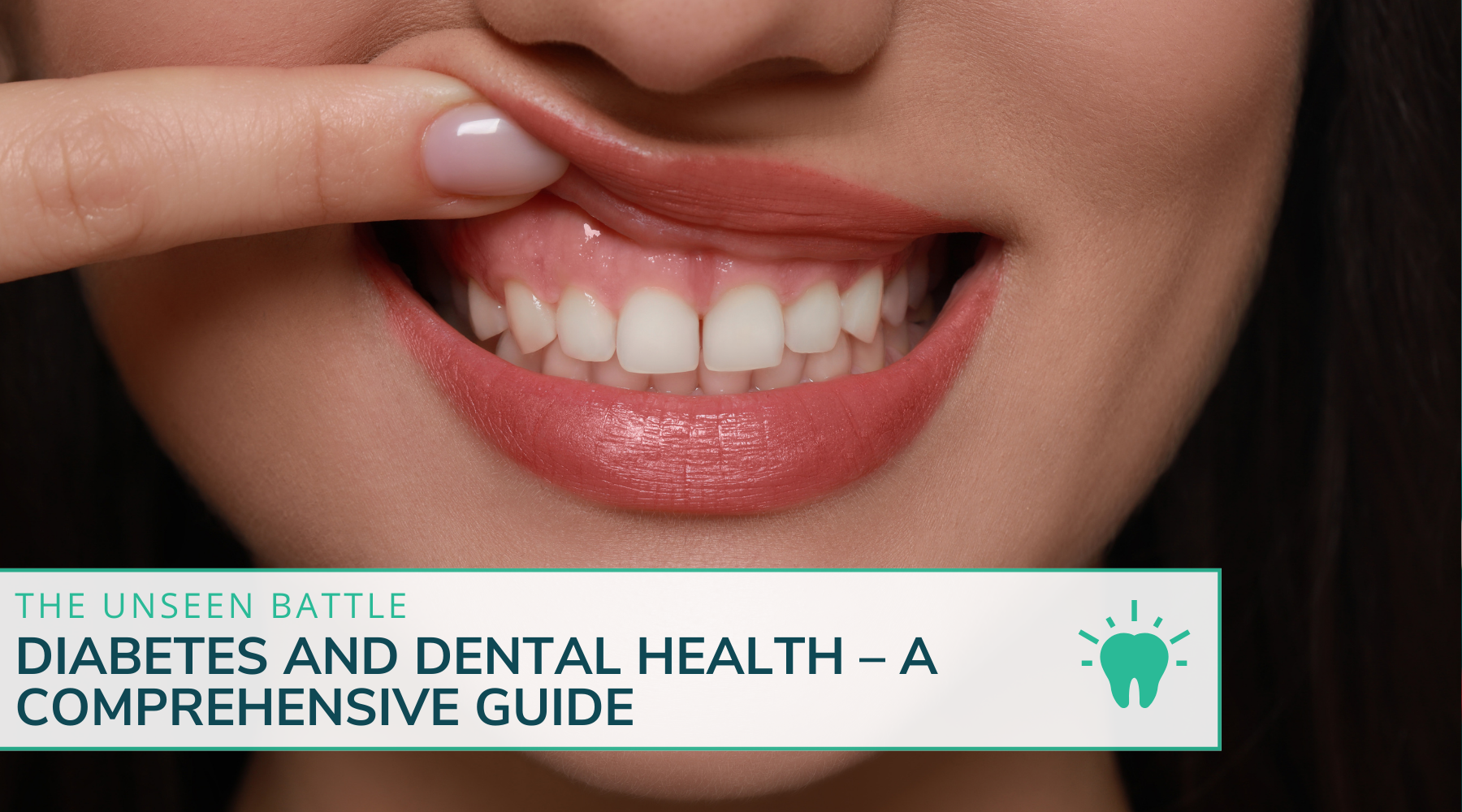
With 29.1 million Americans diagnosed with diabetes and an estimated 8.1 million more unaware of their condition, the impact of diabetes reaches far beyond elevated blood sugars. It turns out peo...

The struggle with tooth brushing isn't unique; it resonates with countless parents globally. If I've heard it once, I have heard it over 100 times. Parents whose children will not brush their teet...
